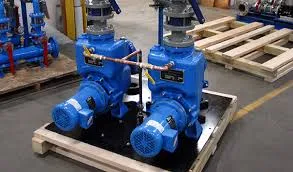English
- Afrikaans
- Albanian
- Amharic
- Arabic
- Armenian
- Azerbaijani
- Basque
- Belarusian
- Bengali
- Bosnian
- Bulgarian
- Catalan
- Cebuano
- Corsican
- Croatian
- Czech
- Danish
- Dutch
- English
- Esperanto
- Estonian
- Finnish
- French
- Frisian
- Galician
- Georgian
- German
- Greek
- Gujarati
- Haitian Creole
- hausa
- hawaiian
- Hebrew
- Hindi
- Miao
- Hungarian
- Icelandic
- igbo
- Indonesian
- irish
- Italian
- Japanese
- Javanese
- Kannada
- kazakh
- Khmer
- Rwandese
- Korean
- Kurdish
- Kyrgyz
- Lao
- Latin
- Latvian
- Lithuanian
- Luxembourgish
- Macedonian
- Malgashi
- Malay
- Malayalam
- Maltese
- Maori
- Marathi
- Mongolian
- Myanmar
- Nepali
- Norwegian
- Norwegian
- Occitan
- Pashto
- Persian
- Polish
- Portuguese
- Punjabi
- Romanian
- Russian
- Samoan
- Scottish Gaelic
- Serbian
- Sesotho
- Shona
- Sindhi
- Sinhala
- Slovak
- Slovenian
- Somali
- Spanish
- Sundanese
- Swahili
- Swedish
- Tagalog
- Tajik
- Tamil
- Tatar
- Telugu
- Thai
- Turkish
- Turkmen
- Ukrainian
- Urdu
- Uighur
- Uzbek
- Vietnamese
- Welsh
- Bantu
- Yiddish
- Yoruba
- Zulu
Telephone: +86 13120555503
Email: frank@cypump.com
Dec . 11, 2024 12:22 Back to list
horizontal split case pumps
Horizontal Split Case Pumps A Comprehensive Overview
Horizontal split case pumps are widely recognized for their efficiency and reliability in various industries, including water supply, agriculture, chemical processing, and HVAC systems. These pumps are specifically designed to handle large volumes of liquids, making them ideal for applications requiring high flow rates and consistent performance. This article aims to provide a comprehensive overview of horizontal split case pumps, discussing their design, applications, advantages, and maintenance considerations.
Design and Construction
Horizontal split case pumps are characterized by their unique design, which features two halves of the pump casing that can be easily separated for maintenance and inspection. This fundamental design allows for easier access to the impeller and other internal components without removing the entire pump from its installation site. The horizontal orientation aids in facilitating a steady flow of liquid, reducing the risk of cavitation and ensuring smooth operational performance.
Typically, these pumps are constructed from durable materials such as cast iron, stainless steel, or bronze, depending on the application and the type of fluid being handled. The impeller, which is the heart of the pump, is usually designed with a single or multiple stages to match the specific head and flow requirements of the system.
Applications
Horizontal split case pumps are utilized in various industries and applications
1. Water Supply and Distribution They play a pivotal role in municipal water supply systems, helping to transport water from treatment plants to distribution networks, ensuring consistent pressure and flow.
2. Fire Protection Systems In fire protection applications, these pumps provide the necessary water supply to sprinkler systems, ensuring effective fire suppression during emergencies.
3. Industrial Processes Many manufacturing processes require the movement of fluids, and horizontal split case pumps are employed to handle everything from chemicals to slurries, ensuring operational efficiency.
4. HVAC Systems In heating, ventilation, and air conditioning (HVAC) systems, these pumps are used to circulate water for cooling towers and boilers, maintaining optimal temperature control.
Advantages
The popularity of horizontal split case pumps can be attributed to several key advantages
horizontal split case pumps

2. High Efficiency These pumps are designed to operate efficiently over a wide range of flow conditions, which can lead to lower energy consumption and reduced operating costs.
3. Robust Construction The materials and design used in horizontal split case pumps contribute to their durability, enabling them to withstand harsh operating conditions while minimizing wear and tear.
4. Variable Flow Capabilities Many horizontal split case pumps can be configured for varying flow rates and heads, making them adaptable to different system requirements and conditions.
Maintenance Considerations
While horizontal split case pumps offer numerous benefits, regular maintenance is crucial for ensuring their longevity and optimal performance. Some essential maintenance practices include
1. Routine Inspections Regularly checking for signs of wear, leakage, and unusual vibrations can help identify potential issues before they lead to significant failures.
2. Condition Monitoring Implementing condition monitoring techniques, such as vibration analysis and thermography, can provide valuable insights into pump performance and potential maintenance needs.
3. Lubrication Keeping the bearings properly lubricated is essential to reduce friction and prevent overheating, particularly in high-speed applications.
4. Impeller Maintenance The impeller should be inspected periodically for damage or build-up that could impact performance. Cleaning or replacing the impeller as necessary will help maintain efficiency.
Conclusion
Horizontal split case pumps are an essential component in various fluid transport applications due to their robust design, efficiency, and ease of maintenance. Their ability to handle large volumes of liquid with steady flow makes them a preferred choice across diverse industries. By understanding their design, applications, advantages, and maintenance requirements, operators can harness the full potential of these pumps, ensuring that they operate efficiently and reliably over their lifespan. Whether in firefighting, water supply, or industrial processes, horizontal split case pumps continue to represent a vital investment in fluid management solutions.
-
ISG Series Vertical Pipeline Pump - Chi Yuan Pumps Co., LTD.|High Efficiency, Energy Saving, Low Noise
NewsJul.30,2025
-
ISG Series Vertical Pipeline Pump- Chi Yuan Pumps|High Efficiency&Low Noise
NewsJul.30,2025
-
ISG Series Vertical Pipeline Pump-Chi Yuan Pumps Co., LTD.|High Efficiency&Energy Conservation
NewsJul.30,2025
-
ISG Series Vertical Pipeline Pump - Chi Yuan Pumps Co., LTD.|Advanced Hydraulic Design&Energy-Efficient Solutions
NewsJul.30,2025
-
ISG Series Vertical Pipeline Pump - Chi Yuan Pumps Co., LTD.
NewsJul.30,2025
-
ISG Series Vertical Pipeline Pump - Chi Yuan Pumps Co., LTD.|energy-efficient fluid handling&industrial durability
NewsJul.30,2025










